About the Author
Xing Yu, a political scientist, was born in 1955 in Nanjing, China. He worked in two universities successively in China from 1980s to 1990s. He obtained a Bachelor of Arts degree after his four-year study in the major English in the Department of English, Sichuan Foreign Languages Institute in Chongqing, China from 1978 to 1982 and he further obtained a Master of Laws degree after his three-year study in the major international politics in the Department of International Politics of Fudan University in Shanghai, China from 1982 to 1985. This manuscript is the result of his over 20-year effort in academic research. He now lives in the Province of British Columbia, Canada.
Copyright 2015 by
Xing Yu
University Press of America, Inc.
4501 Forbes Boulevard
Suite 200
Lanham, Maryland 20706
UPA Acquisitions Department (301) 459-3366
Unit A, Whitacre Mews, 26-34 Stannary Street,
London SE11 4AB, United Kingdom
All rights reserved
Printed in the United States of America
British Library Cataloging in Publication Information Available
Library of Congress Control Number: 2015945290
ISBN: 978-0-7618-6640-4 (clothbound : alk. paper)
eISBN: 978-0-7618-6641-1
 The paper used in this publication meets the minimum requirements of American National Standard for Information SciencesPermanence of Paper for Printed Library Materials,
The paper used in this publication meets the minimum requirements of American National Standard for Information SciencesPermanence of Paper for Printed Library Materials,
ANSI Z39.48-1992
To All that Seek the Progress of Civilization
Prologue
This monograph is a study of the correlation between language and state. It is intended to study the fundamental role played by language first and then to study how language provides a condition for the genesis and growth of the state. Language is considered a basis for the growth of the state. Language, therefore, is also considered a basic element of the evolution of human community from the primitive society to the civil society. This is because the commencement of using language, be it spoken or written, has no other sociological significance but that for the beginning of a long evolution from the tribe to the state. The reason for me to hold this view is that after the dissolution of tribes or communal families, men become isolated individuals outside their core families characteristic of monogamy. Under these circumstances, what connects all is language. Thus the state is to language what the tribe is to kinship. The state is a creation of language. That is, when humans are in the tribes, they originally perform their mutual communication by way of their behaviors. For example, they smile or wave their hands to communicate with each other. They may even dance to communicate with each other. Behavior is the original medium used in communication. As behavior is the medium used in the communication of short distance or short-range, such way of communication dictates the small scale of the community. Men are connected with each other by kinship. The use of language is a revolution. After the invention of language, men are enabled to develop various media. The distance or range of their mutual communication is extended. For example, spoken communication and written communication extend the distance of communication. When spoken communication is performed, men function as media in the related process of communication because human chain linguistic communication is performed. When written communication is performed, materials such as stone, clay, papyrus, parchment and paper are used as media. The time of communication is extended and the space of communication is expanded. Men then perform long time and large space communication. Their community grows large, leading to the formation of the state and the dissolution of the tribe formed because of kinship. Thus, the interpretation of the role played by language in the formation and growth of the state should be an attempt of philosophical interpretation to offer a systematic description of the formation and growth of the state.
Pioneering to interpret the origin of the society, the past philosophers sometimes mentioned the role of language in the formation of the society. They held that language enables men to perform the exchange of feelings, to impart thoughts or ideas and even to chronicle history. Thus they insisted that men form their society because of language. For example, Aristotle pointed out that language is the peculiarity of humans. He wrote that a human being is more of a political animal than is any bee or than are any of those animals that live in herds. He indicated that humans can perform the exchange of feelings and present their views about justice and injustice due to the use of language. 1 Thomas Hobbes also mentioned language in the formation of the society. He wrote that:
[T]he most notable and profitable invention of all other, was that of Speech, consisting of Names or Appellations , and their Connexion; whereby men register their Thoughts; recall them when they are past; and also declare them one to another for mutuall utility and conversation; without which, there had been amongst men, neither Common-wealth, nor Society, nor Contract, nor Peace, no more than amongst Lyons, Bears, and Wolves. 2
They might conceive of the role of language in the formation of the society instead of the state. Even though they believed that language plays a role in the formation of the state, their narration is ambiguous. In short, they only believed that men associate together because of language. This view cannot clarify the origin of the state. This view may show that men form their society because of language. Yet if we suppose that men do not use language, they may also associate together just like some social animals. My view about the role of language in the formation of the state is that when humans use language for communication, they develop various media. Along with the development of various media, they extend the distance of linguistic communication. Thus they extend the time of communication and expand the space of communication. After men extend the time of communication and expand the space of communication, they build a large community. This leads to the formation of the state and the dissolution of the tribes. Thus the state is formed. A quantitative change leads to a qualitative change. In the past kinship is the basic element of the unity of the tribe. Today language or linguistic communication is one basic element of the unity of the state. Thus language plays a role in the genesis and growth of the state.
This view can be used to re-interpret the theories of the origin of the state adduced by the past philosophers in order to enable us to see the whole picture of the origin and growth of the state because the interpretation performed by the past philosophers may be neither complete nor accurate. If we use this view to interpret the origin and growth of the state, we may see the state differently.
The key is that when the past philosophers discussed language, they failed to behold the role of media in support of the use of language. If they devoted their attention to the role of media in linguistic communication and found that it was the extension of linguistic communication distance that led to the formation of the state, they would probably be aware of the role of language in support of the growth of the state. This is because language is the objectivity of men within the state. Media rely on language. Media attach themselves to language. Language may be viewed differently if the role of media is also studied. To put it another way, language not only facilitates men to communicate with each other, but also extends linguistic communication distance so as to enable men to associate together on a large scale so that the original community formed because of kinship is dissolved and the new community formed because of linguistic communication is built. Thus, if we study the role of language in this aspect, we may be able to invent a new theory about the genesis and growth of the state distinct from the views adduced by the past philosophers. We can compare this new view with the related views adduced by the past philosophers to show a unique interpretation of the origin and growth of the state. This view may supplement the existing views about the origin of the state.


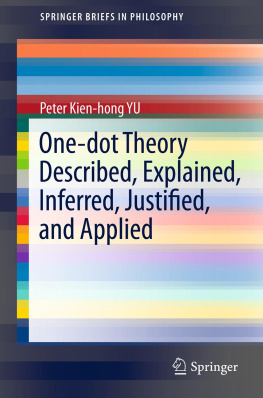
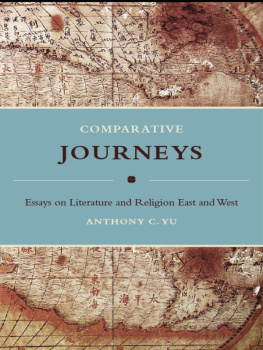


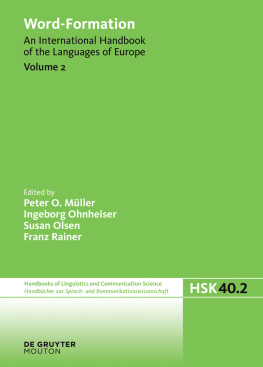
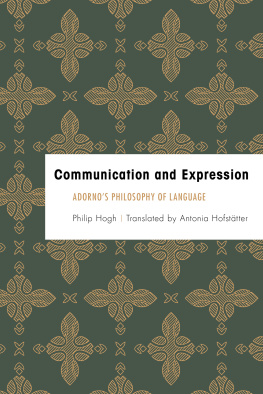
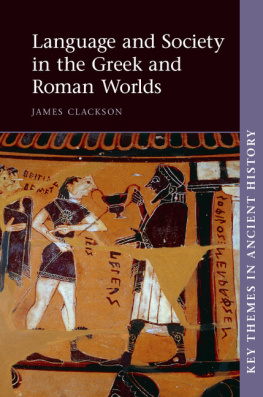
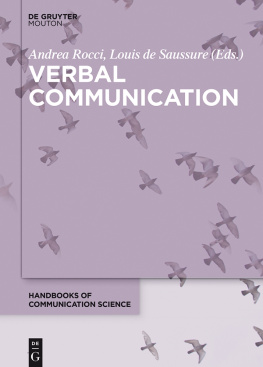
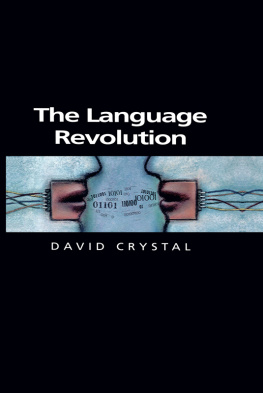

 The paper used in this publication meets the minimum requirements of American National Standard for Information SciencesPermanence of Paper for Printed Library Materials,
The paper used in this publication meets the minimum requirements of American National Standard for Information SciencesPermanence of Paper for Printed Library Materials,